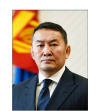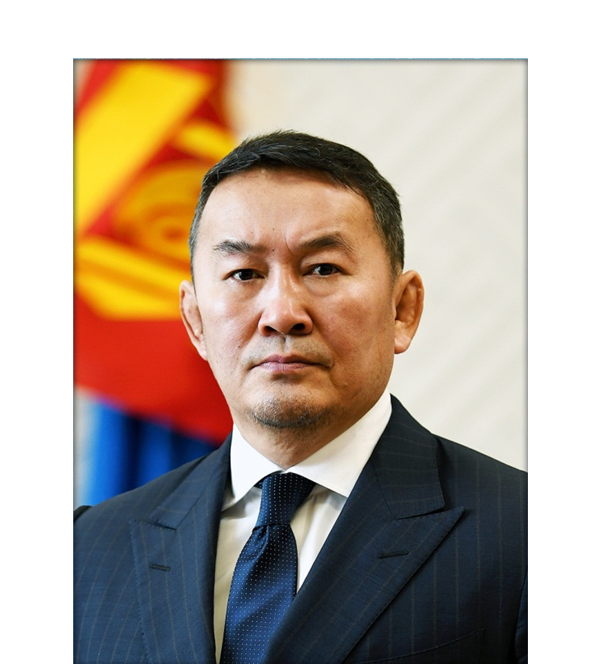ADDRESS BY H.E. MR. KHALTMAA BATTULGA, PRESIDENT OF MONGOLIA, AT THE SEVENTY SEVENTH SESSION OF THE UNITED NATIONS ECONOMIC AND SOCIAL COMMISSION FOR ASIA AND THE PACIFIC
Mr. Chair,
Madame Executive Secretary
Distinguished delegates,
Ladies and gentlemen,
I am delighted to have this opportunity to address virtually at the opening of the seventy seventh session of the United Nations Economic and Social Commission for Asia and the Pacific.
I am confident that this session of the Commission will contribute to setting out policies and identifying common goals designed to overcome the social and economic crises caused by the COVID-19 pandemic.
The pandemic has brought the most serious social and economic devastation to the world since World War II. It remains unclear when the crisis will end, when countries will accomplish social and economic recovery, and when humanity will adapt to the “new normal.” Although each country is taking steps to overcome the crisis, we need to fight the crisis together and further enhance multilateral cooperation.
The speedy and efficient vaccination against the pandemic is the best solution to returning life to normal. Equal distribution and access to vaccines is the most effective way to overcome the crisis together. Nobody is safe until everyone is safe.
Mr. Chair,
It is clear that social protection responses to the pandemic by many Governments will hinder the economic recovery. It is important to look at the “big picture” of how to successfully overcome the current crisis, integrate the economic recovery with people-centered development policies, and address the challenges.
The present situation requires change in our understanding on the economic system that we know, including the notion of a growth-based economy. In the future, the difference between developing and developed countries will be widened and the debt is expected to rise. Also, it is expected that there will be slow and delayed implementation of goals, such as achieving sustainable development, developing transport connectivity, building a fair society and delivering accessible health care and social services.
Therefore, it is crucial to expand international cooperation, develop a unified long-term policy aimed at improving human development and livelihood and ensuring environmental sustainability. We expect that this unified policy will be as a signal of change and an opportunity to lead to new conditions, to see holistically and give impetus to solution.
Infrastructure, energy and transport are the central development pillars of landlocked developing countries like Mongolia. In this regard, we proposed to jointly implement a project to build an energy power grid to address the rational use and distribution of power in Northeast Asia. In the region, which is rich in renewable energy, the project is expected to not only increase the use of renewable energy, but also make a significant contribution to environmental protection and the fight against climate change.
Lastly, it is my firm belief that the deed to build the most prosperous and most crisis resilient Asia-Pacific will be realized and implemented.
I thank you for your attention.


